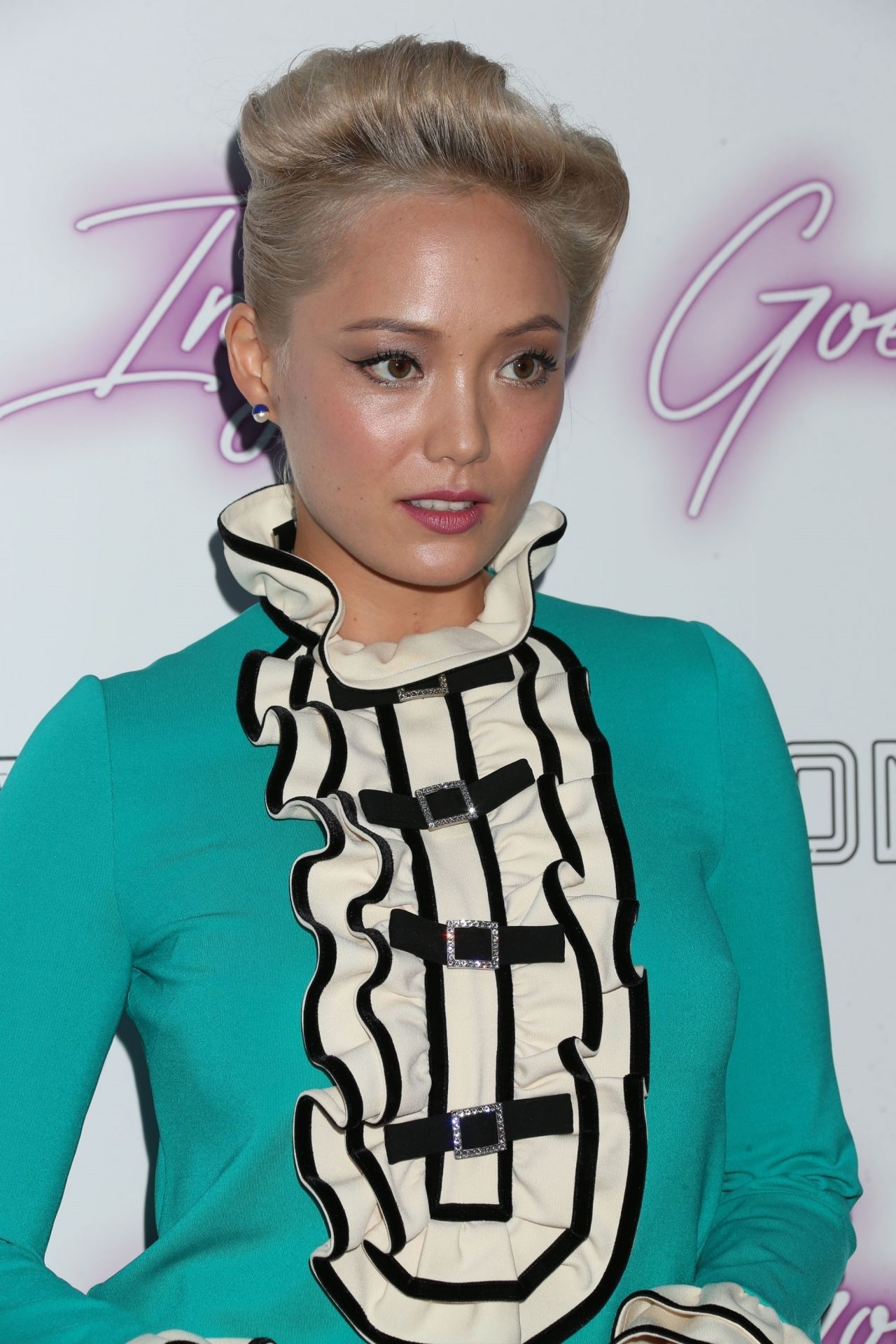Sex on Campus
Identity-

100 % Free
Identity
Politics
A report from
the agender,
aromantic, asexual
top line.
Photos by
Elliott Brown, Jr.
NYU course of 2016
“Presently, I claim that i’m agender.
I am the removal of my self from personal construct of gender,” claims Mars Marson, a 21-year-old NYU film significant with a thatch of quick black colored hair.
Marson is conversing with myself amid a roomful of Queer Union students on class’s LGBTQ college student middle, in which a front-desk bin offers cost-free keys that let visitors proclaim their unique preferred pronoun. With the seven pupils obtained at Queer Union, five like the single
they,
designed to signify the sort of post-gender self-identification Marson describes.
Marson was created a woman naturally and was released as a lesbian in high school. But NYU had been a revelation â a spot to explore transgenderism and reject it. “I don’t feel linked to the word
transgender
because it feels a lot more resonant with binary trans folks,” Marson says, discussing people that need to tread a linear course from feminine to male, or vice versa. You might say that Marson and the other pupils at Queer Union identify rather with getting someplace in the middle of the way, but that is not quite correct sometimes. “i do believe âin the middle’ however throws men and women since the be-all-end-all,” claims Thomas Rabuano, 19, a sophomore drama major who wears makeup, a turbanlike headband, and a flowy shirt and dress and cites Lady Gaga plus the gay figure Kurt on
Glee
as big adolescent part types. “I like to imagine it outdoors.” Everyone in the class
mm-hmmm
s acceptance and snaps their unique fingers in accord. Amina Sayeed, 19, a sophomore from Diverses Moines, believes. “old-fashioned ladies’ garments tend to be feminine and colourful and emphasized the fact that I experienced breasts. We disliked that,” Sayeed states. “So now I say that i am an agender demi-girl with connection to the female binary sex.”
In the far edge of university identification politics
â the locations as soon as occupied by gay and lesbian pupils and later by transgender people â you now find pockets of college students like these, teenagers for who tries to categorize identification experience anachronistic, oppressive, or just sorely irrelevant. For older years of gay and queer communities, the fight (and pleasure) of identification exploration on campus can look rather common. Nevertheless the differences these days tend to be striking. Current task is not only about questioning an individual’s own identification; it is more about questioning the actual character of identity. May very well not be a boy, you may not be a lady, possibly, and exactly how comfortable have you been with the notion of becoming neither? You might want to sleep with guys, or women, or transmen, or transwomen, and also you might want to be psychologically involved with them, too â but maybe not in identical mix, since why must the passionate and intimate orientations fundamentally have to be the exact same thing? Or why think about positioning whatsoever? The appetites might-be panromantic but asexual; you may identify as a cisgender (perhaps not transgender) aromantic. The linguistic options are nearly endless: a good amount of vocabulary meant to articulate the character of imprecision in identity. And it’s really a worldview that is considerably about words and thoughts: For a movement of young adults pressing the boundaries of need, it could feel amazingly unlibidinous.
A Glossary
The Hard Linguistics regarding the Campus Queer Movement

A few things about gender haven’t altered, rather than will. However for those of us exactly who decided to go to college many years ago â or just a couple of years back â many of the latest intimate terminology tends to be unfamiliar. Under, a cheat sheet.
Agender:
someone who identifies as neither male nor female
Asexual:
somebody who does not enjoy sexual interest, but who may go through romantic longing
Aromantic:
a person who does not enjoy enchanting longing, but really does experience libido
Cisgender:
maybe not transgender; hawaii wherein the sex you identify with matches the main one you’re designated at delivery
Demisexual:
you with minimal sexual interest, frequently thought only in the context of deep psychological hookup
Gender:
a 20th-century restriction
Genderqueer:
someone with an identity away from standard sex binaries
Graysexual:
an even more broad phrase for someone with limited sexual interest
Intersectionality:
the fact sex, race, class, and sexual orientation is not interrogated on their own from a single another
Panromantic:
an individual who is romantically contemplating anyone of any gender or orientation; this does not fundamentally connote associated sexual interest
Pansexual:
somebody who is actually intimately interested in any person of any sex or positioning
Reporting by
Allison P. Davis
and
Jessica Roy
Robyn Ochs, a former Harvard administrator who had been from the school for 26 decades (and who began the school’s party for LGBTQ professors and staff members), sees one significant reason why these linguistically challenging identities have actually unexpectedly be so popular: “I ask young queer folks the way they learned the labels they describe on their own with,” claims Ochs, “and Tumblr will be the No. 1 response.” The social-media platform has produced a million microcommunities global, such as Queer Muslims, Queers With Disabilities, and Trans Jewry. Jack Halberstam, a 53-year-old self-identified “trans butch” professor of sex researches at USC, especially alludes to Judith Butler’s 1990 book,
Gender Trouble,
the gender-theory bible for campus queers. Quotes as a result, like a lot reblogged “There isn’t any sex identity behind the expressions of sex; that identification is actually performatively constituted from the extremely âexpressions’ which are considered its outcomes,” are becoming Tumblr bait â possibly the earth’s minimum probably widespread content material.
But some of the queer NYU students I spoke to did not become certainly knowledgeable about the vocabulary they today use to describe themselves until they arrived at college. Campuses are staffed by administrators whom came old in the 1st trend of political correctness at the peak of semiotics-deconstruction mania. In school now, intersectionality (the idea that race, class, and gender identification are typical linked) is actually main on their means of comprehending almost everything. But rejecting categories completely is generally sexy, transgressive, a helpful way to win a quarrel or feel special.
Or even that’s also cynical. Despite how serious this lexical contortion may appear to a few, the scholars’ really wants to determine on their own beyond sex decided an outgrowth of intense pain and strong scars from getting increased in the to-them-unbearable role of “boy” or “girl.” Creating an identity definitely described with what you
aren’t
does not appear particularly simple. We ask the students if their brand new social license to spot themselves beyond sexuality and sex, in the event that absolute multitude of self-identifying solutions they have â including myspace’s much-hyped 58 gender selections, anything from “trans individual” to “genderqueer” into vaguely French-sounding “neutrois” (which, according to neutrois.com, can’t be defined, since the very point of being neutrois would be that your own gender is actually specific for your requirements) â often leaves all of them sensation as though they’re going swimming in space.
“i’m like i am in a candy store so there’s these different alternatives,” claims Darya Goharian, 22, an elderly from an Iranian household in a rich D.C. area which determines as trans nonbinary. However even the phrase
solutions
are too close-minded for most inside the party. “I take problem with this term,” claims Marson. “it can make it seem like you are choosing to be some thing, when it’s perhaps not a choice but an inherent element of you as a person.”
Amina Sayeed identifies as an aromantic, agender demi-girl with link with the feminine binary gender.
Picture:
Elliott Brown, Jr., NYU class of 2016
Levi straight back, 20, is actually a premed who was simply nearly knocked regarding general public senior school in Oklahoma after coming-out as a lesbian. But now, “we identify as panromantic, asexual, agender â and if you want to shorten all of it, we can only go as queer,” straight back claims. “I don’t experience intimate interest to anybody, but I’m in a relationship with another asexual individual. We do not have sex, but we cuddle constantly, hug, write out, keep arms. Everything you’d see in a PG rom-com.” Back had previously dated and slept with a woman, but, “as time went on, I became less interested in it, and it turned into similar to a chore. I am talking about, it believed great, nevertheless didn’t feel just like I found myself developing a solid connection through that.”
Now, with Back’s recent girlfriend, “lots of why is this connection is all of our psychological connection. And how open the audience is with one another.”
Back has begun an asexual party at NYU; ranging from ten and 15 men and women typically show up to conferences. Sayeed â the agender demi-girl â is one of them, too, but identifies as aromantic instead asexual. “I experienced got gender by the point I happened to be 16 or 17. Women before young men, but both,” Sayeed claims. Sayeed continues to have intercourse sporadically. “But I do not encounter any type of romantic destination. I experienced never ever recognized the technical phrase for this or whatever. I’m nonetheless able to feel love: i really like my buddies, and I like my family.” But of slipping
in
really love, Sayeed states, with no wistfulness or question that might transform later on in life, “i suppose i simply you shouldn’t realise why I ever would at this point.”
Such from the personal politics of history was about insisting on the directly to sleep with any individual; now, the libido seems such a minor element of this politics, which includes the authority to say you really have little to no want to sleep with anyone whatsoever. Which will frequently run counter on much more traditional hookup society. But instead, perhaps this is the subsequent logical step. If hooking up has carefully decoupled sex from relationship and feelings, this movement is actually clarifying that you could have relationship without intercourse.
Although the rejection of sex is not by option, fundamentally. Maximum Taylor, a 22-year-old transman junior at NYU exactly who additionally determines as polyamorous, says that it’s already been more difficult for him currently since the guy started taking hormones. “I can’t choose a bar and grab a straight lady and just have a one-night stand quite easily any longer. It can become this thing in which basically want a one-night stand i need to describe i am trans. My swimming pool of men and women to flirt with is actually my personal area, in which a lot of people know both,” states Taylor. “Typically trans or genderqueer individuals of color in Brooklyn. It feels as though i am never gonna fulfill some one at a grocery shop once more.”
The challenging language, as well, can function as a layer of safety. “you can aquire very comfortable at the LGBT heart to get always individuals asking your pronouns and everyone once you understand you’re queer,” claims Xena Becker, 20, a sophomore from Evanston, Illinois, who identifies as a bisexual queer ciswoman. “But it’s however actually depressed, difficult, and perplexing a lot of the time. Even though there are other terms does not mean the emotions tend to be simpler.”
Additional revealing by Alexa Tsoulis-Reay.
*This post appears into the Oct 19, 2015 dilemma of
Ny
Mag.